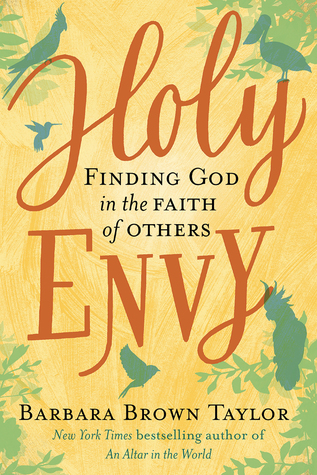More on this book
Community
Kindle Notes & Highlights
Read between
March 5 - March 11, 2020
Jesus seems to know more about the way of transformation than many of his followers do. If someone wants to learn more about God, he implies, it will involve more than believing someone else’s answers. It will involve thinking deeply about the questions you are asking and why. Then it will involve acting on the answers you come up with in order to discover what is true.
finding these things attractive did not mean it was time for me to convert or—conversely—to start making a quilt of spiritual bits and pieces with no strong center. The third possibility was to let my attraction to other teachings transform my love for my own.
“if I worship You for fear of Hell, burn me in Hell, and if I worship You in hope of Paradise, exclude me from Paradise. But if I worship You for Your Own sake, grudge me not Your everlasting Beauty.”
What we have most in common is not our religion but our humanity,
In his book God and the Universe of Faiths, British theologian John Hick makes a compelling argument. Before Copernicus, he says, earthlings believed they occupied the center of the universe—and why not? Earth was the place from which they saw everything else. It was the ground under their feet, and as far as they could tell everything revolved around them. Then Copernicus proposed a new map of the universe with the sun at the center and all the planets orbiting around it. His proposal raised religious questions as well as scientific ones, but he was right. The sun, not the earth, holds the
...more
This highlight has been truncated due to consecutive passage length restrictions.
Other examples of redemptive religious strangers in the first testament of the Bible include Bithiah, the Pharaoh’s daughter who plucked the baby Moses from his rush basket in the River Nile and raised him as her own; Jethro, the Midianite priest who was Moses’s father-in-law and teacher; Ruth, the Moabite who became the ancestor of King David; and Cyrus, the Persian king who ended the Babylonian exile and allowed the Jews to return home—the only non-Jew in the Bible who is ever identified as God’s anointed one.
However you define the problematic present-day stranger—the religious stranger, the cultural stranger, the transgendered stranger, the homeless stranger—scripture’s wildly impractical solution is to love the stranger as the self. You are to offer the stranger food and clothing, to guarantee the stranger justice, to treat the stranger like one of your own citizens, to welcome the stranger as Christ in disguise. This is God’s express will in both testaments of the Bible.
there is a place where human knowing runs out.
The story of Jesus and Nicodemus freed me from believing I had to know the answer to every question about what it means to be Christian.
By revising the divine will and creating a world full of people who spoke different languages, God chose variety over uniformity. God created the conditions for multiple interpretations of everything that required speech to describe. There was no longer one right way to say a true thing. There were many ways to say it.
“Do unto others as they would have you do unto them (instead of thinking they are just like you).”
I asked God for religious certainty, and God gave me relationships instead.


